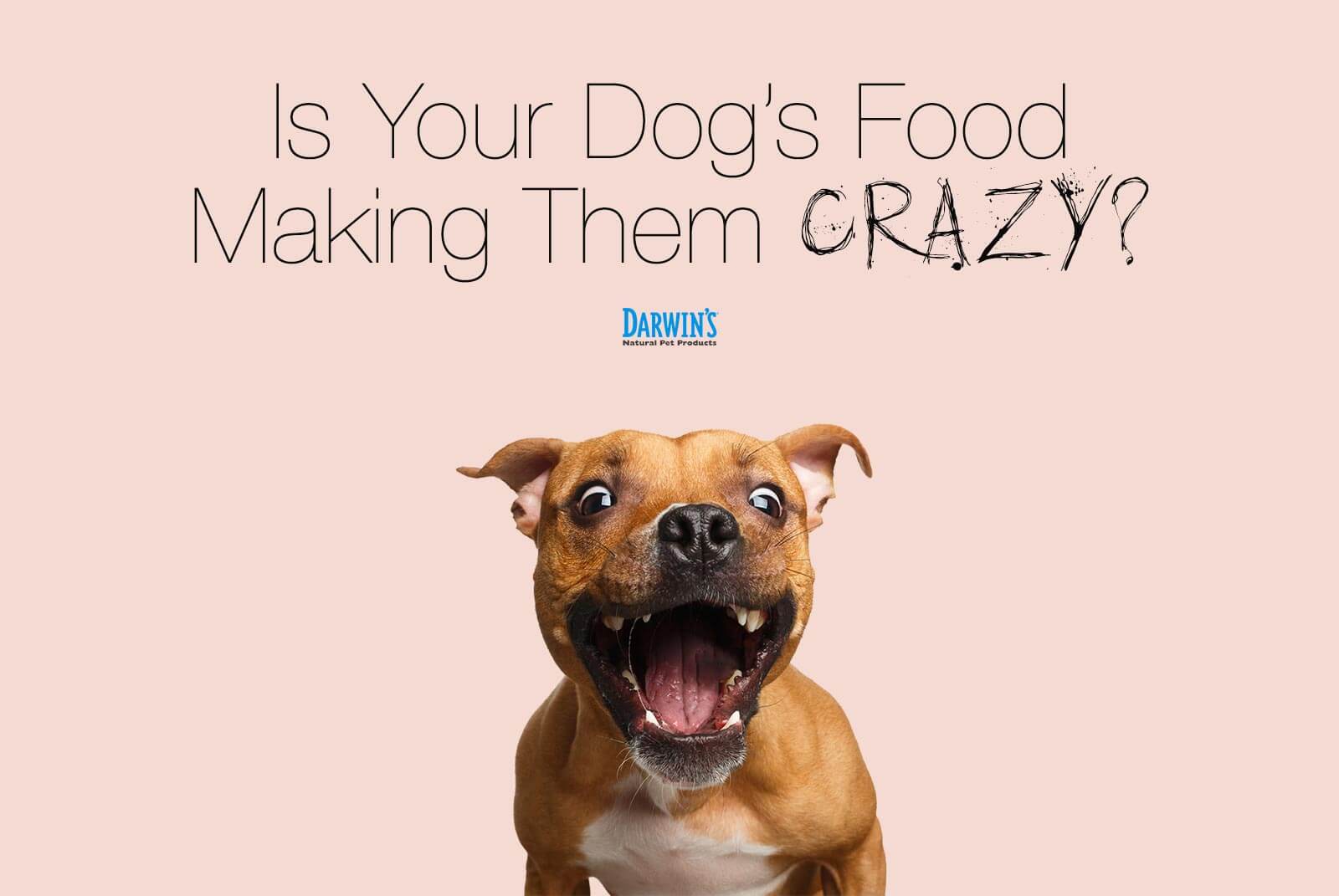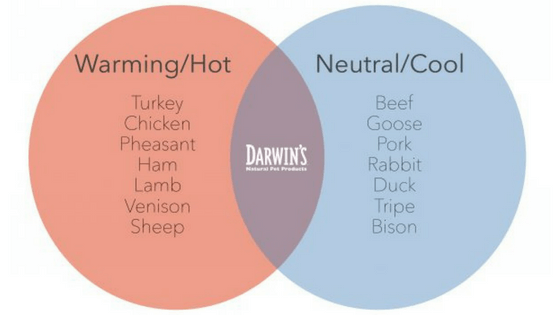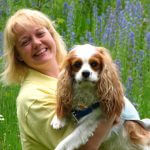Is Your Dog’s Diet Making Them Crazy?
7/6/17

Can The Dog Food I Feed Make My Dog Aggressive?
Is your dog is lunging and pulling at the end of his leash and acting aggressive or reactive towards other dogs? Dog reactivity, or over reactive dogs, can be a serious problem. Besides training, diet might be an issue.
How Your Dog’s Food Affects Their Behavior
I will provide you with a few fundamentals about Traditional Chinese Medicine Theory, (TCM), but can’t go into much depth here. Well over 4,000 books and textbooks have been written on the topic, such as Traditional Chinese Veterinary Medicine: Fundamental Principles by Dr. Huisheng Xie and Dr. Vanessa Preast. TCM is not a new concept or belief; in fact, it dates back to about the second century BC.
The foundation of Traditional Chinese Medicine is that everything in the universe is connected; the air, plants, people, animals, food, the mind and internal organs etc. are all interrelated and work together to form a perfect harmony or balance. When something in our life is out of balance, this is when illness occurs, physically, mentally or even both. This concept extends to how we feed our pets; finding the right balance in their diet is crucial. For guidance on how much food should I feed my dog, our feeding chart can provide helpful insights.
Despite the existence of Doctors of Traditional Chinese Medicine and certifications in veterinary medicine, scientific studies are limited. TCM can be challenging to study based on all the complexities of the ideas and principles, particularly if you are trying to evaluate food therapy on a large scale. However, I have spoken to a variety of holistic veterinarians over the years about their experiences using TCM and also have used TCM theory with my own dog training clients with great success.
Yin and Yang Theory And How It Applies To Dogs
Being a pet lover, you have probably seen various logos utilizing the Yin and Yang symbol in some way. But, do you truly understand what that symbol represents?
To a Traditional Chinese Medicine practitioner, Yin and Yang theory is fundamental in their treatment protocols. All things in the universe are either Yin or Yang, but nothing is all Yin or all Yang. They are a little Yin and a little Yang to create a balance. They need each other equally to create balance, harmony, and well-being. A good way to think of Yin and Yang is to think of things as pairs. Some examples can include male and female, day and night, hot and cold.
Yin and Yang
One way to think of Yang is movement, activity or energetic. Yin, on the other hand, is still or quiet. Now, think about your dog. Is your dog on the go all the time? Into this and that? Does he react quickly to stimuli? Does he physically seem hot? If so, he may be too Yang or Yin deficient. On the other side, if he is quiet, slow and seems cold, he may be too Yin or Yang deficient. Ideally, your dog would be a balance of both Yin and Yang, not deficient in one and excess in the other.

How TCM Can Influence Your Dog’s Behavior
As I mentioned earlier, everything is either on the Yin (cold) side or Yang (hot) side, including your dog’s food. Every food has a specific energetic and function in both your dog’s health and his mind. Understanding and using the basics of TCM food therapy can help improve a dog’s behavior or make it worse.
There are foods that are more Yang or warming to the body and foods that are more Yin and cooling to the body. The energetics of a food will affect the energetics, behavior, and health of your dog. An energetically warming food will increase the internal heat and behavior of a dog, where a cooling food will decrease their heat and calm their behavior.
Think about your over-reactive dog, he’s HOT! Go-go-go, bark-bark-bark. Feeding him a diet that is energetically hot or warming is going to increase his heat and activity, like adding kerosene to the fire. If you want to help your dog calm down and decrease his heat and overabundance of activity, you should feed him a cooling diet.
An energetically cooling diet will help your dog internally cool down and mentally chill out. If he is hot, reactive, and cannot think, it is going to be hard for him to control his mind and learn new behaviors. Duck is a cooling protein and would be a good choice for an over-reactive dog. Beef is neutral, so would be another option. Turkey, chicken, lamb, and venison are warming, therefore are not the best options for a hot dog.

The Benefits Of A Raw Diet On Your Dog’s Behavior
Feeding your dog a raw diet provides him with optimal health. Raw food provides real and natural essential nutrients that are needed to maintain good health and decrease disease. A raw fresh food ensures your dog receives the best balanced nutrition for both his body and his mind.
Take Willow, for example. Willow is a golden retriever mix who came to me for sever reactivity towards other dogs. Her mom had an extremely hard time getting Willow to focus on her with the slightest presence of another dog, even from 50 yards away. Her mom agreed to put Willow on a raw, cooling diet. Within a week, Willow started to be able to chill out and focus better, allowing her mom to implement a positive dog training protocol to reduce Willow’s dog reactivity. Over the last four years of implementing food therapy with my dog training clients, I have seen the positive effects of the right diet over and over again. Is diet the only factor to change a dog’s behavior? No. But, it certainly does help and I’ve felt that the behavior changes with those clients who apply food therapy are much quicker.
Foods that are highly processed or contain preservatives can be detrimental to a dog’s behavior and health. Dogs are carnivores, designed to eat a fresh balanced diet high in moisture. A dog’s body needs a species appropriate food to help support his mind and body. If you are hoping to improve your dog’s behavior, consider using the energetic principles of TCM. The bottom line is unprocessed, fresh, food is always best, pure and simple.

Named one of the top ten dog trainers in the US, she has helped thousands build happy relationships with their dogs using humane, positive training methods. She wrote Proactive Puppy Care and other books. Tonya offers group and private dog training classes, provides training and behavior services via phone and online, and does workshops at pet expos.Her main objective is to help others lead a fun and healthy lifestyle with their pets. www.raisingyourpetsnaturally.com



